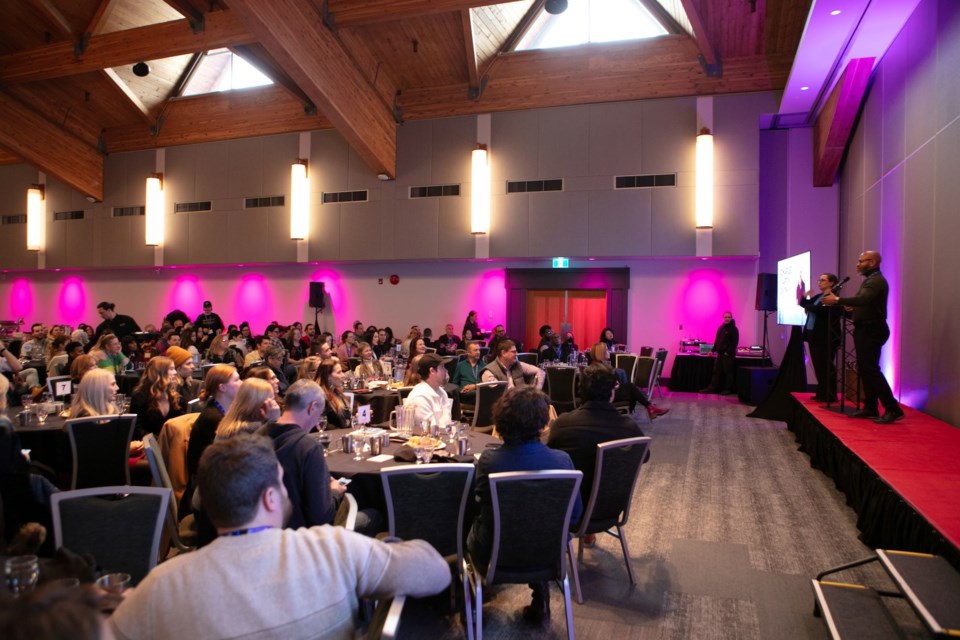On May 14, the Whistler Film Festival Society (WFFS) convened a Special General Meeting (SGM) in Vancouver. A number of WFFS bylaws were revised—much to the chagrin of Shauna Hardy, who founded the Society in 2002 alongside Kasi Lubin.
Among the most significant developments was the rescindment of a long-standing provision which allowed the Founding Member of the Board (i.e. Hardy) to appoint someone, including themselves, to the Board every year.
“We were advised that this capacity for someone to be able to appoint themselves in perpetuity, is not in the interest of good governance,” said WFFS chair Sue Brouse in an email to Pique.
“Updating the specific bylaw in question ensures the Society’s board seats are open and available to anyone who wishes to stand for election and promotes the attraction of board members who can bring a diversity of skills, perspectives and experience to benefit the Whistler Film Festival, its funders, members and fans. The changes are in the best interest of the Whistler Film Festival and are not intended to alter any agreement between the Founder and the Society.”
Hardy saw things differently prior to the vote. On May 13, she disseminated a letter to WFFS members urging them to submit proxy votes opposing the amendment (votes that were denied as they were received past the necessary deadline). She also filed an unsuccessful petition to the BC Supreme Court to block the meeting four days before it took place.
In her letter, Hardy claimed there are “serious issues” with the proposed changes and a “lack of transparency” from the board in terms of why they were recommending such changes.
“The amendments will also allow the Board to remove me as a Director of the Society as they consider me ‘a problem member’ for questioning their actions, which could be effective immediately after the meeting,” she wrote.
“There is no evidence—although I have repeatedly requested it—in regard to me being a ‘problem director,’ that I am in ‘material conflict’ or that my objectives are ‘consistently contrary to those of the Society,’ nor has any procedural fairness or due process been granted in regard to specific accusations made by the Board Chair.”
Moreover, Hardy pointed out WFFS bylaws were last updated in August 2022 in compliance with the BC Societies Act, and questioned why the Board modified them again within 20 months.
“I was surprised by the board’s direction on the Special General Meeting and bylaw updates and feel that the communication issued to the membership was misleading,” Hardy said in an email interview. “I believe the resolutions deserved to be addressed and fulsomely debated with members at the Annual General Meeting in August with a wholesome picture of the current state of affairs.”
New rules for members
One other notable edit pertains to membership.
“The changes in membership clarifies that ‘members’ under the Motion Picture Act —ticket purchasers, a.k.a. viewing members—are not voting members,” explained Brouse. “Currently the Film Classification Board requires everyone who wants to see a film at the festival to buy a membership, as the majority of films we screen are unclassified.
“Our bylaws did not differentiate between members who simply bought a ticket because they were required to in order to see a film, and those who have a more meaningful engagement with the Society and could therefore be more invested in it as a voting member.”
Now, the WFFS has three categories of membership: viewers who just want to watch movies, voters who aim to get involved as filmmakers or donors, and founders like Hardy and Lubin. Viewing members can become voters by applying, and sponsors at a certain level will appoint a representative to vote on their behalf.
The current model resembles that found in other organizations like the Vancouver International Film Festival (VIFF).
“According to the Society’s bylaws, it is our duty as board directors to act honestly and in good faith with a view to the best interests of the Society. As a founder of the Whistler Film Festival, longest-serving board member and employee for 20 years, and registered owner of the Whistler Film Festival trademarks, I remain committed to the best interests of the Society,” Hardy wrote to Pique, adding she is optimistic the board will honour the trademark agreement.
“I believe the arts uplift humanity. My sincere hope is that the Whistler Film Festival remains successful and relevant, both economically and culturally, for the benefit of the Whistler community and Canadian screen-based entertainment industry, which it has served for 24 years.”




